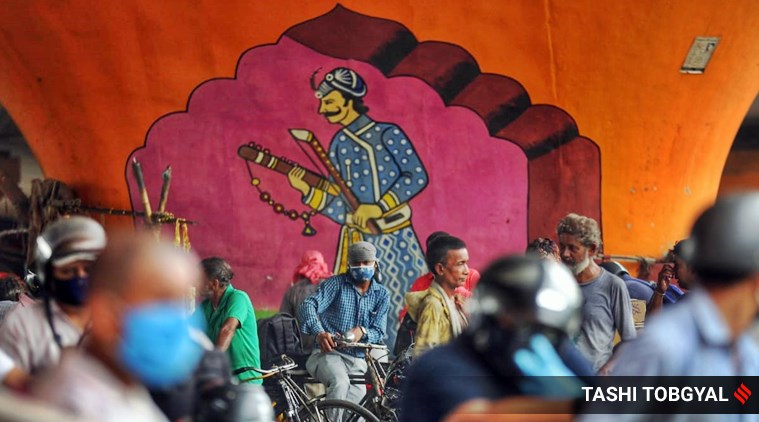 Last week, the Delhi government had announced that hotels and weekly markets, shut since March, will be allowed to resume functioning.
Last week, the Delhi government had announced that hotels and weekly markets, shut since March, will be allowed to resume functioning.
The Delhi government’s push to unlock the city, as part of which it has even locked horns with the Centre, has its basis in the ailing service sector, which provides over 60% jobs in the capital.
Hotels, restaurants, entertainment and events, among other fields, keep the capital’s economy going, and are responsible for creating over 60% of all jobs, Deputy Chief Minister Manish Sisodia told The Indian Express.
Last week, the Delhi government had announced that hotels and weekly markets, shut since March, will be allowed to resume functioning. Within 24 hours, the decision was overturned by the L-G, saying that while there was improvement, the “pandemic situation in the capital continues to be fragile and the threat is still far from over”.
Sisodia wrote to the Home Minister Amit Shah on Saturday, asking him to direct the L-G to accept the government’s decision to reopen these two sectors. The file will be sent to the L-G again on Tuesday for reconsideration.
After a sharp dip during the beginning of the outbreak, the city’s monthly GST and VAT collections have risen consistently over the past four months. In April, the government got Rs 240 crore, followed by Rs 494 crore in May, Rs 762 crore in June and Rs 1,300 crore in July. However, these are well below what the city was bringing in last year. In July 2019, the city got Rs 3,500 crore in collections. The year before that, collection was Rs 4,078 crore.
But direct tax collections aren’t the government’s primary worry. With the service sector taking a substantial hit because of the pandemic and the lockdowns, employers have had to drastically cut jobs.
“In Delhi, the service sector is among the biggest job providers and it has been hit very hard. They provide more than 60% of all jobs. This is followed by the trading sector. Government revenue is just one aspect but the bigger problem is jobs. If these sectors are allowed to open up, jobs can be saved. This is why we are insistent that they be allowed to function,” Sisodia, who is also the Finance Minister, said.
While restaurants have been open for almost a month now, earlier restrictions of closing by 9 pm, no permission to serve alcohol and social distancing norms have meant far fewer customers.
Illustrating how the pandemic and restrictions have hit business, Sisodia said the festival season had been lacklustre. “If we take a person running a tents business, he has suffered losses throughout. The Kavad Yatra, where tents would be put up across the city, was cancelled, Navratri celebrations did not happen, Eid al-Fitr and Eid al-Adha and now Rakhi have all been subdued. While festivals are about emotions and culture, they are also part of the economy. The service sector would be thriving at this time. Market associations have told us their business is down 15-20%,” Sisodia said.
Last month, the Delhi government set up a committee to pave the way for economic revival and growth in the city. Headed by Dialogue and Development Committee vice-chairperson Jasmine Shah, it also comprises representatives of several businesses and industry and is focusing on leasing licensing norms and simplified Covid-19 regulations.